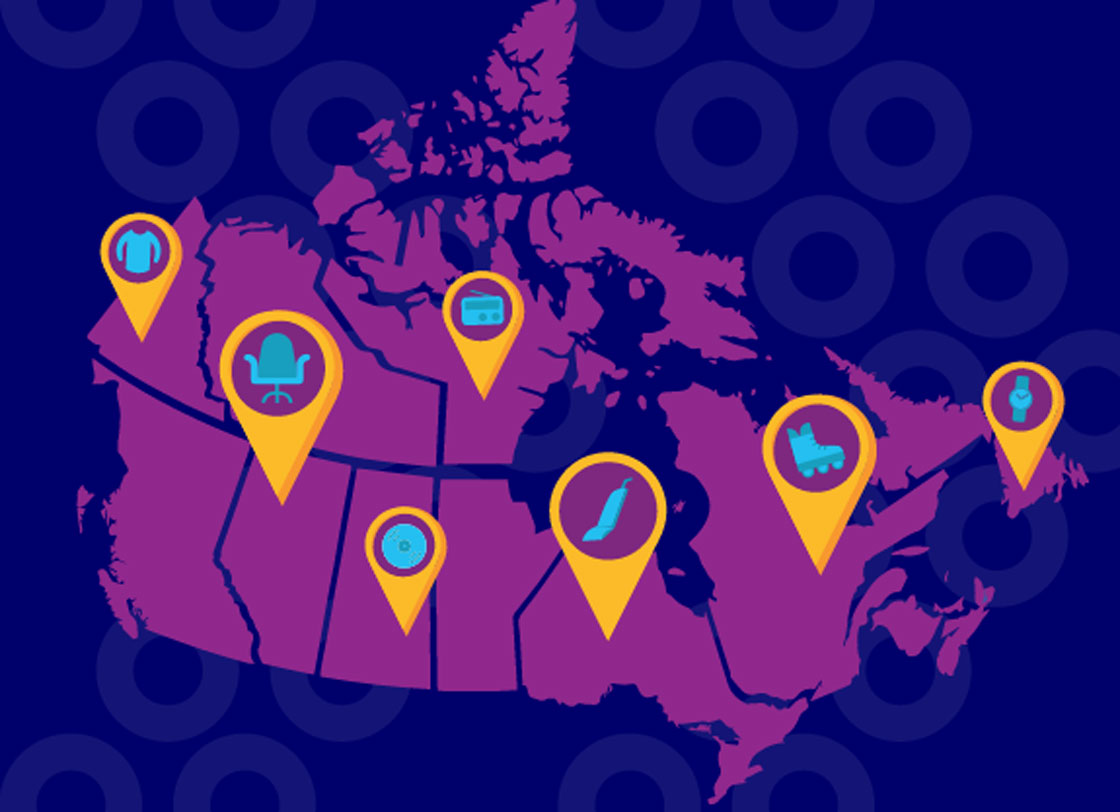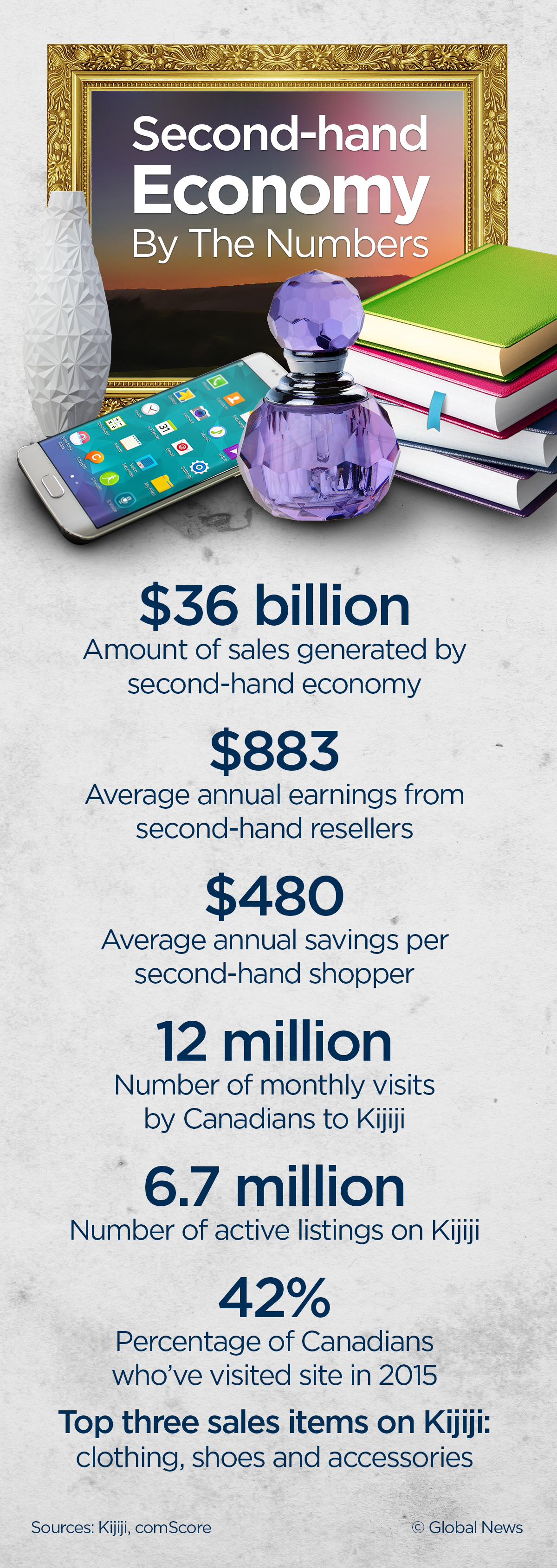Pop quiz: Ever wondered where the name Kijiji – for the uninitiated, pronounced ka-jee-jee – comes from?

Look to eBay for the answer. It was in 2004 that the e-commerce site introduced the second-hand online marketplace to Canada. The word itself is Swahili for “village.” And as nearly half of Canadians can attest to, it has become a key resource for reselling the stuff we no longer use.
Fresh numbers released Tuesday from the site help confirm it. The so-called “second-hand” economy that Kijiji and others like Craigslist and (increasingly) Facebook have helped build on the Internet has topped $28 billion in annual sales in Canada, a new report suggests.
The report, undertaken by Kijiji in partnership with researchers from the University of Victoria and the Observatoire de la Consommation Responsable in Montreal, reveals the kind of positive data points that mirror similar studies put out by others such as Facebook.
The apparent aim is to show that technology companies aren’t just disrupting old industries and eliminating jobs – they’re also creating new jobs and wealth.

Get weekly money news
The report says the average reseller earns $883 from posting ads for items such as clothing, shoes and accessories – the three most popular categories on Kijiji. For more on that, see the infographic below.
‘Bright spot’
The Kijiji study, which you can find in full here, was released the same day Statistics Canada provided an update on the Canadian economy.
While things are performing better than expected given the resource slump, households in oil-producing regions are feeling the chill of low oil prices, while consumers elsewhere appear to be dialing back spending on things in stores as prices climb because of the lower dollar.
“This report confirms that the second-hand economy is an important social and economic force in Canada, and a bright light in an otherwise worrisome economy,” Marc-Andre Hade, a marketing manager at Kijiji Canada, said.




Comments